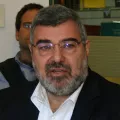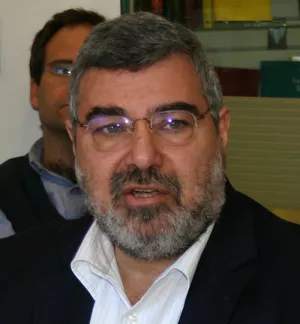DOHA, Qatar -- In the world of nation-states, the small Arab emirates and states of the Gulf region have been peculiar beasts since their birth in the middle of the last century, in the wake of the retreating British. Their transformation into wealthy, glittering, bustling city-states in a matter of decades, in some cases, has been impressive -- and perhaps unprecedented in the entire history of human civilization.
The Gulf city-state sheikhdoms remain largely unstudied, though. Their chosen course of breakneck speed, foreign- manned socio-economic development and growth, and their unique brand of overnight nationalism anchored in cities that barely existed decades previously, deserve analysis in their own right, and also for what they might teach other Arab countries.
A century ago, sheikhdoms like Qatar, Kuwait, Bahrain, Dubai, Abu Dhabi and a few others were tiny fishing ports, smuggler depots, imperial fuelling stations, or Bedouin encampments. They had miniscule and often nomadic populations, without urban traditions or distinct national identities. Today, they are mostly independent states and some are global financial powerhouses, yet they remain incongruous.
These dazzling centers of seemingly endless growth are defined by massive new public and private building projects, hundreds of soaring tower buildings, entire new urban quarters and towns built virtually overnight. They contain slightly fantastic commercialism and entertainment, ambitious projects in the fields of education, research, museums, and culture. At the same time, these are countries without politics, and are largely devoid of any institutions of civil society - through which private citizens can gather in various associations to debate, analyze and advance their own societies.
They have some institutions like elected parliaments, semi-elected or nominated advisory councils, local assemblies, municipal councils, political associations, and private media. Yet in no case do any of these institutions shape significant national policies, and when they become too feisty they are usually shut down for a while.
What is most odd but also clearly the case, is that there is little demand among the indigenous populations to change this situation. Perhaps it is not so odd, though, given that the ruling families and their governments have used the bountiful oil and gas wealth to provide their citizens with all their basis needs, and to allow many of them to become very wealthy without exerting too much effort or taking too many risks.
Most of these statelets are now experiencing a second oil-fuelled boom, following the 1970s-90s burst of income, spending and growth. High prices and global demand for their energy has provided them with cushions of cash that are being invested in a manner that should see them remain wealthy for decades to come.
The faster they develop, though, the more obvious become the sharp polarizations between the Gulf region and the rest of the Arab world. The Gulf is an oasis of wealth, growth, innovation, order and stability, while much of the rest of the Arab world suffers increasingly serious political violence, ethnic and sectarian tensions, corruption, mismanagement, and rickety states. The implications of the growing gap between the Gulf Arabs and the rest of the Arabs are unclear, but probably will be consequential.
As energy and food prices continue to rise in the years ahead, alongside worse water deficits, much of the Arab world beyond the Gulf is likely to suffer more internal stresses. More Arab countries and individuals will look to the pool of money in the Gulf to help rescue them. The Gulf states historically have been generous in offering assistance to poorer Arab countries in the form of loans, grants, and investments; but they will not wish or be able to use their money as a primary means of interaction with the rest of the region.
Qatar offers perhaps the most intriguing example of how these states might evolve politically as they start to shed their traditional diplomatic conservatism. Qatar is the first Gulf state to behave like a non-Gulf Arab country, in terms of making bold moves on the regional stage. It has successfully mediated intra-Lebanese disputes, played host to Hamas for a while, established diplomatic ties with Israel, assisted reconstruction in Lebanon and Palestine, and maintained active diplomatic ties with Iran -- where the emir of Qatar traveled for official talks last week.
Other novel aspects of its policies include funding and hosting Al-Jazeera television, allowing the United States to base its regional military headquarters in the country, welcoming branch campuses of half a dozen quality American universities, and fostering several institutions to promote democracy and human rights in the region.
These are all young initiatives, whose longevity and impact remain to be seen. But they reflect a very different style of bold political conduct in a region that remains politically conservative and minimalist, despite having transformed itself in just decades from a largely barren backwater to a dynamic engine of Arab economic investment, efficient planning and execution, orderliness, and modernity.
Khouri, Rami. “The Incredible Development of the Gulf States.” Agence Global, August 27, 2008


